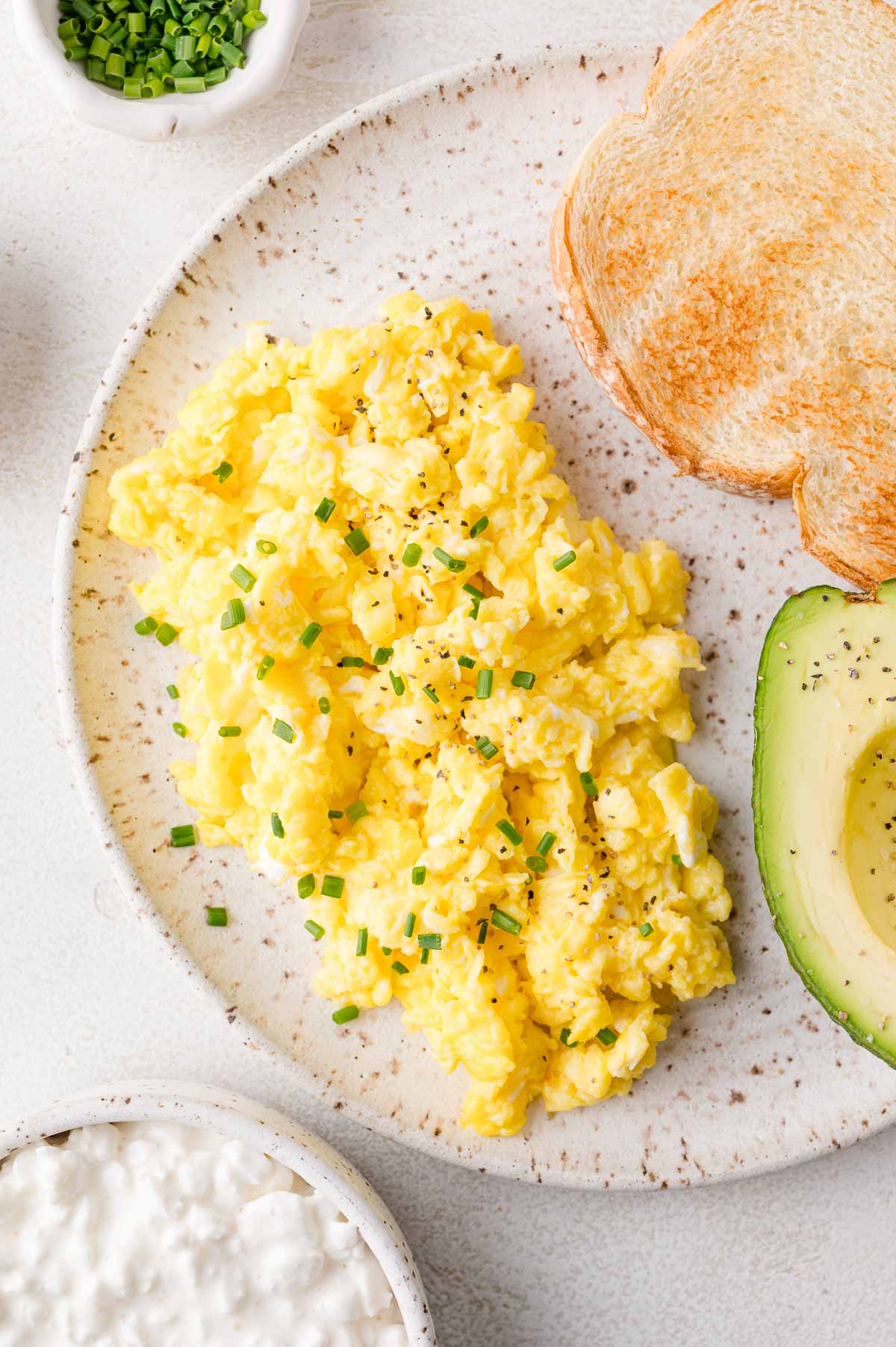Cottage Cheese Eggs
Recipe Overview
Why you’ll love it: Not only are these cottage cheese eggs the creamiest you’ll ever eat, they’re also low-carb and packed with protein! You’ll love that they’re easy enough for a weekday breakfast too.
How long it takes: 7 minutes
Equipment you’ll need: nonstick skillet
Servings: 1
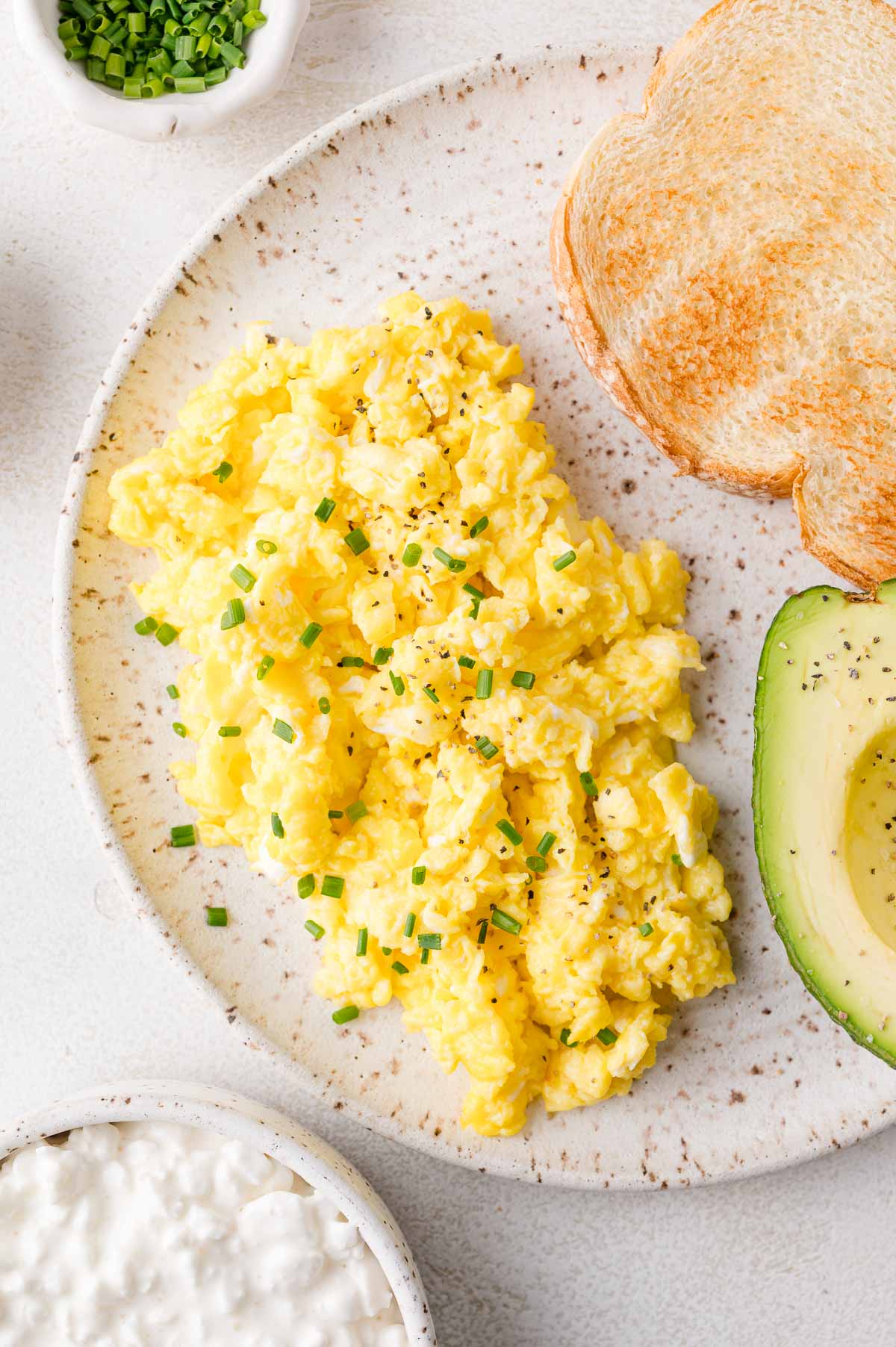
Pin this now to find it later
Level up Your Scrambled Eggs
Protein is having a moment, and so is cottage cheese. In order to nail our protein goals, we’re trying to find ALL the ways to work cottage cheese into every meal we can. I’ve found the results can be hit or miss, but cottage cheese eggs have become one of my favorites. (This peach banana cottage cheese smoothie is pretty darn amazing too.)
Not only do you get extra protein in your breakfast with these cottage cheese eggs, they’re also legitimately delicious in their own right. The cottage cheese helps keep them from getting dry and it adds a rich creamy element to the mix. You can spruce them up with fresh herbs and other toppings (like ketchup, if that’s your thing), but they’re so tasty, you really don’t need to!
Cottage Cheese Scrambled Eggs
An easy way to incorporate cottage cheese into your breakfast. If you’re not a fan of eating cottage cheese on its own, this recipe is a great way to sneak it into your diet. My mom, who has always professed a dislike for anything cottage cheese, raves about these scrambled eggs made with cottage cheese.
A protein-packed breakfast option. With two eggs and a quarter cup of cottage cheese as the main ingredients, this recipe has 18 grams of protein to keep you feeling full and satisfied until lunchtime. (As a point of reference, two eggs without cottage cheese have 12 grams of protein.)
Quick and simple to make. With only 2 minutes of prep time and 5 minutes of cook time, these cottage cheese eggs are perfect for busy weekday mornings when you want a hot, healthy breakfast but don’t have a lot of time. I also find myself turning to cottage cheese eggs when I’m looking for a quick lunch or even dinner.
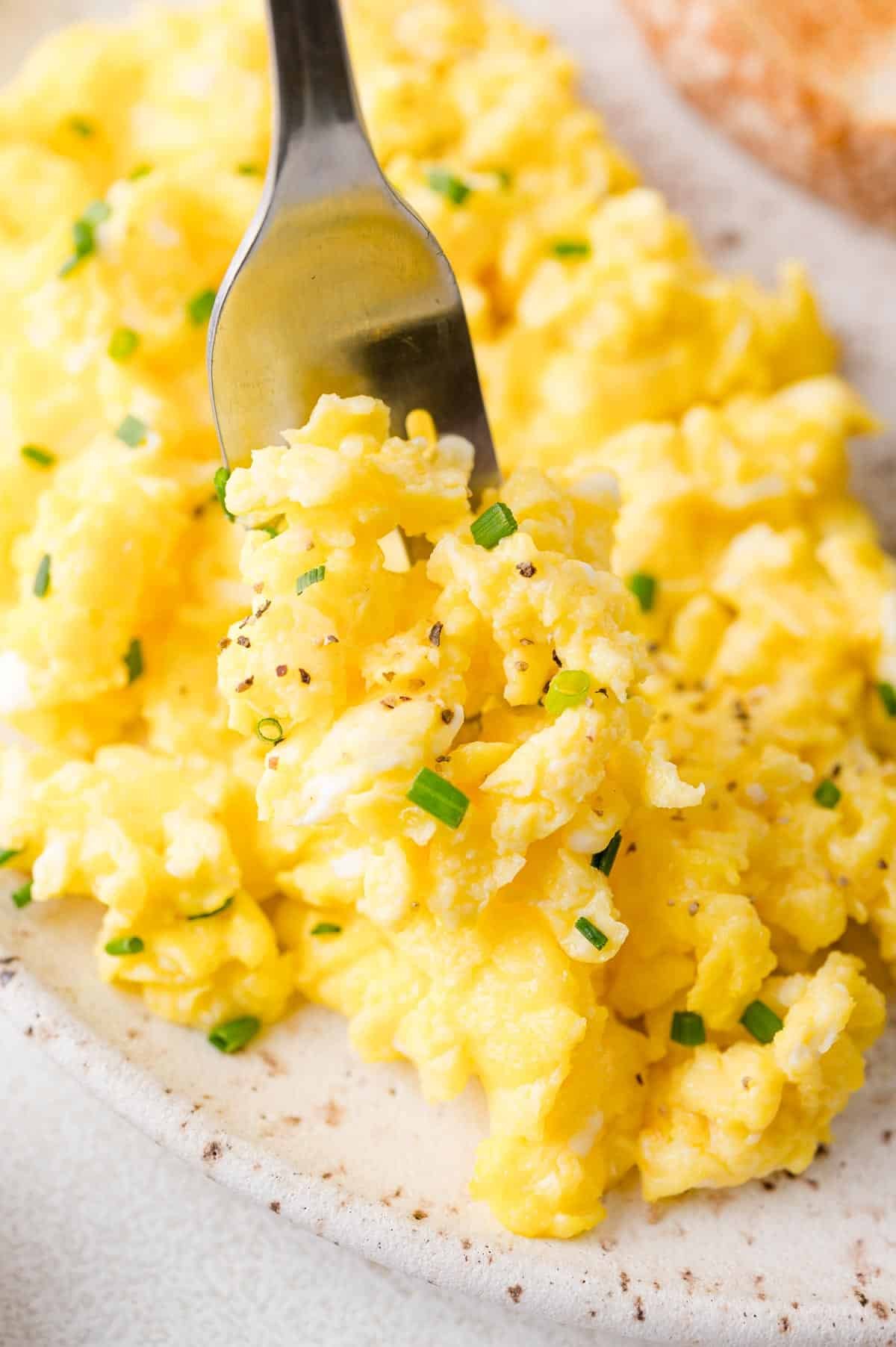
Ingredient Notes
- Eggs: Choose fresh large eggs. You’ll need two for this recipe but it’s easy to double or triple it to make as many as you like.
- Small curd cottage cheese: I’ve found that full-fat cottage cheese is the best option. Nonfat or low-fat cottage cheese tends to make the scrambled eggs watery. You could use large curd cottage cheese but the larger curds will be more noticeable in the scrambled eggs.
- Black pepper: Freshly ground black pepper adds a pop to the flavor.
- For cooking: Choose your favorite for making scrambled eggs: butter, oil, or olive oil spray.
Recipe Tip
Cottage cheese tends to be a little salty so you may not need to add any salt to the eggs. Cook the cottage cheese eggs first, then taste and add salt if needed.
How to Make Cottage Cheese Eggs
Mix the eggs and cheese. Crack the eggs into a small bowl, then whisk in the cottage cheese until blended.
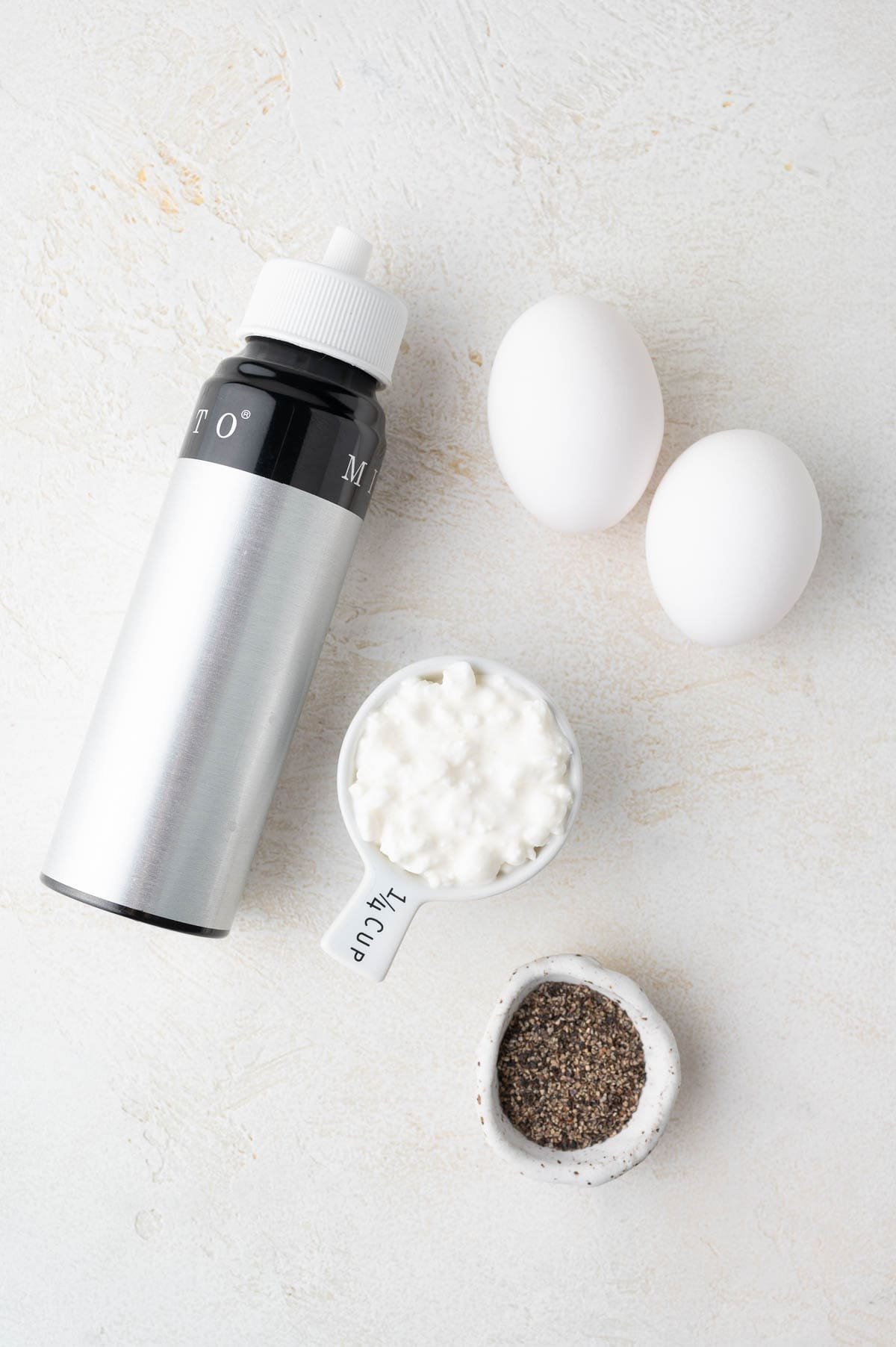
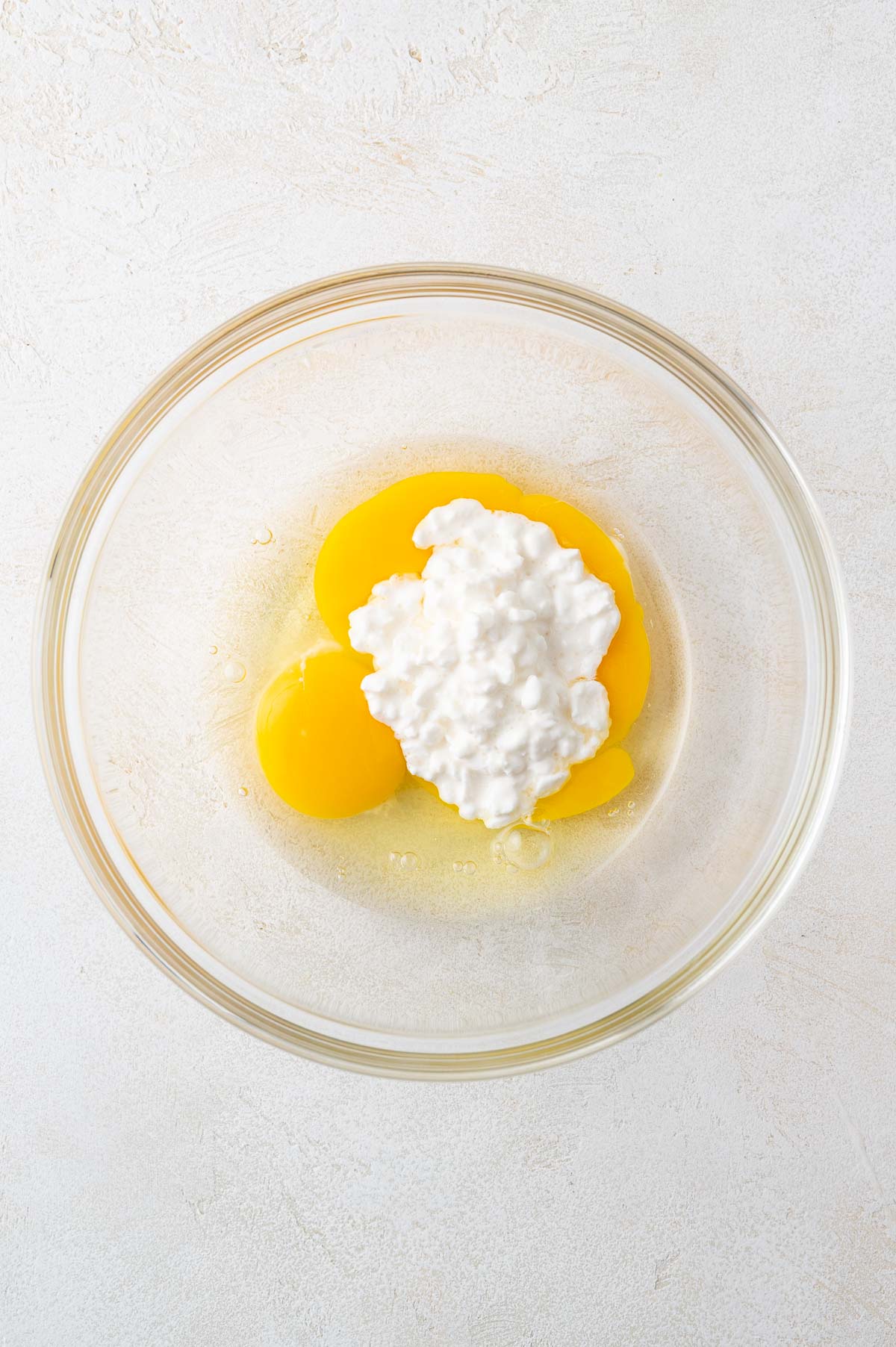
Prepare. Warm a nonstick pan over medium-low heat, then add oil, butter, or olive oil spray.
Cook. Add the egg mixture to the pan. Once the edges begin to set, use a rubber or silicone spatula to push them to the center. Continue this process, pushing the cooked edges to the middle and stirring every few seconds.
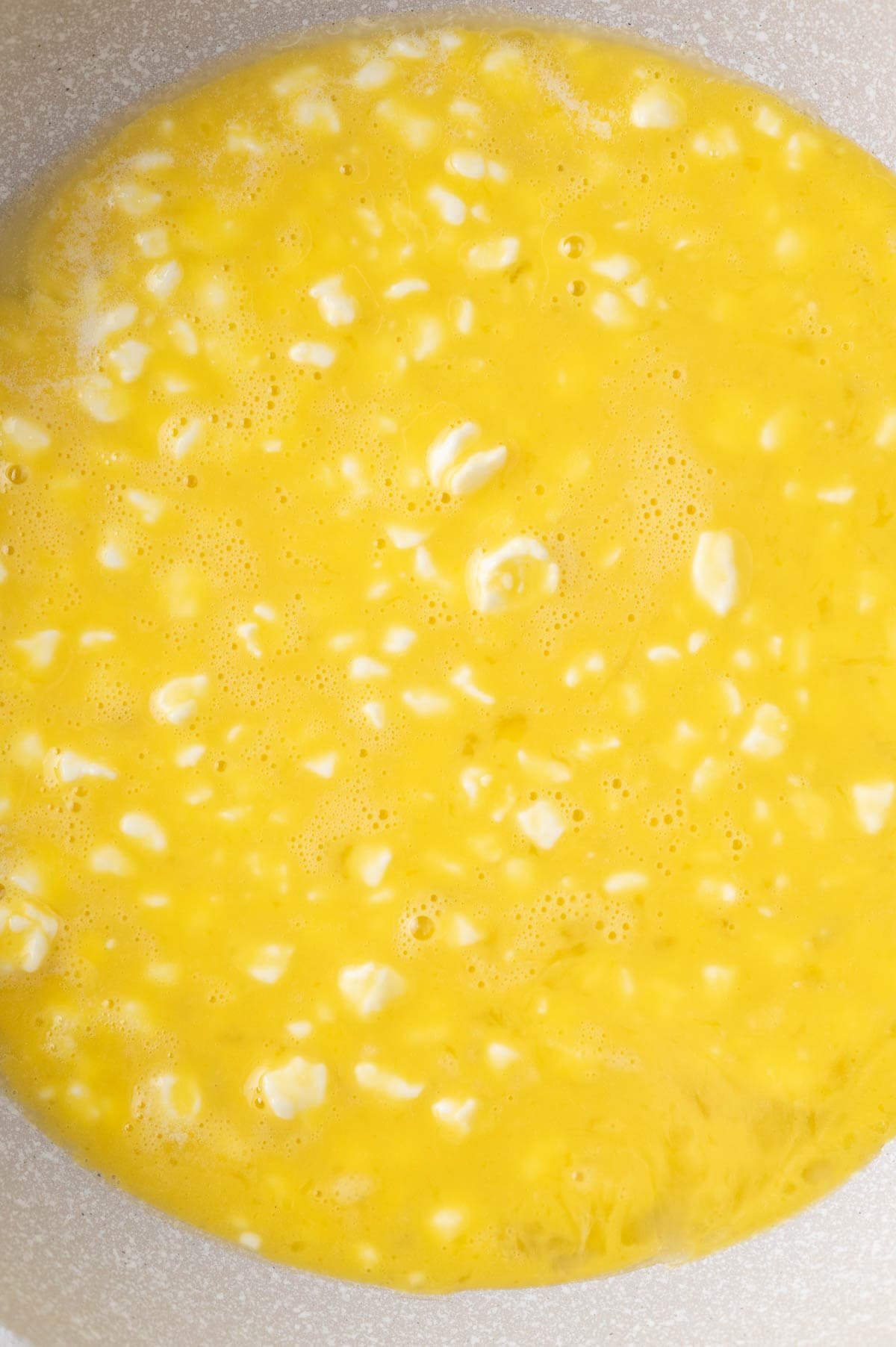
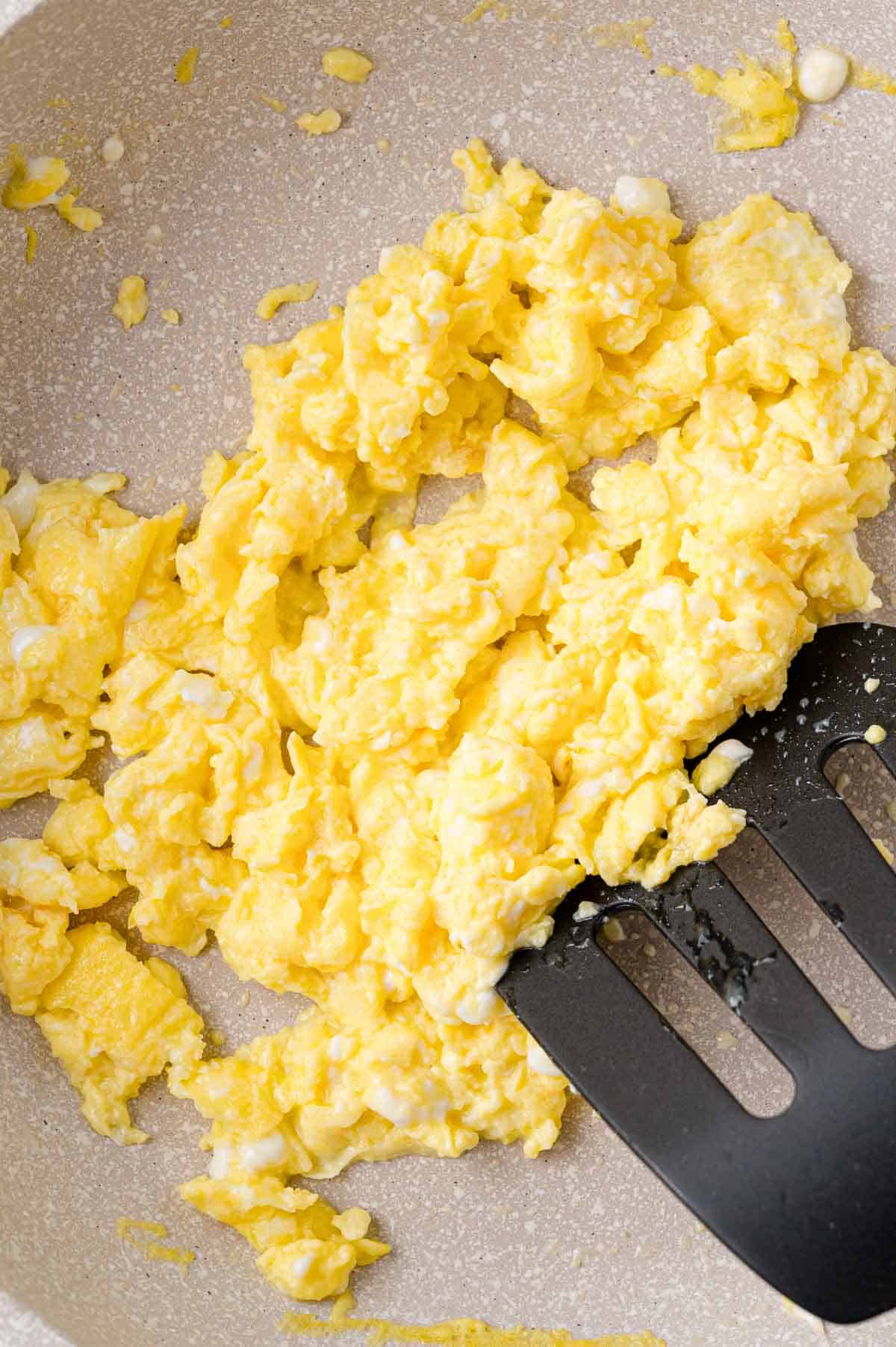
Finish. Once the eggs are mostly set but are still soft and creamy, remove the pan from the heat. If you want them firmer and dryer, you can leave the eggs in the pan a bit, still stirring and flipping, until they reach the desired texture but I find cottage cheese eggs taste best if they are slightly underdone as compared to overdone. Season with pepper, and serve.
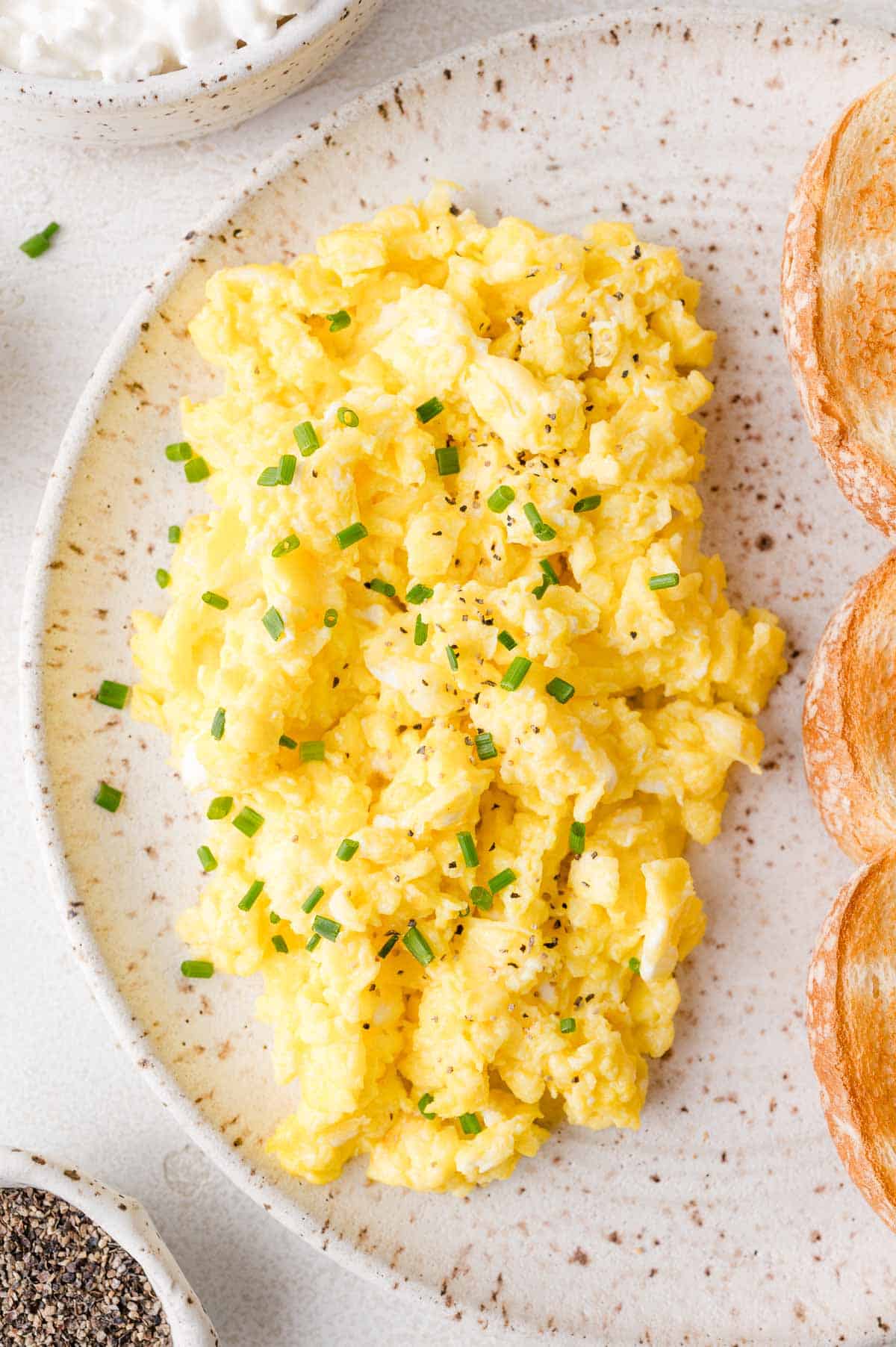
Easy Recipe Variations
Add your favorite seasonings. Everything bagel seasoning, Italian seasoning, red pepper flakes, or all purpose seasoning are a few of my favorite options. Fresh herbs like parsley, chives, and dill are fantastic too.
Make them meaty. Diced ham (like leftover crockpot ham!) and cooked crumbled bacon are both delicious options to add even more protein to your breakfast.
Sprinkle cheese on top. Add shredded cheddar or crumbled feta on top of your cottage cheese eggs for double the cheesy goodness.
Drizzle with a sauce. Chimichurri, hot sauce, or pesto are all great options to drizzle over your eggs for added flavor. Try my cilantro pesto or this basil pesto recipe.
Serving Suggestions
Refrigerate: Scrambled eggs are best eaten fresh but you can keep any leftovers in an airtight container for up to 3 days. Scrambled eggs don’t freeze well, so I don’t recommend freezing them.
Reheat: Warm up leftover eggs in the microwave in 30-second intervals until they’re heated through. You can also reheat them in a nonstick pan over medium-low heat, stirring occasionally.
In a small bowl, whisk eggs with cottage cheese until well-combined.
2 large eggs, ¼ cup small curd cottage cheese
Heat a small nonstick frying pan over medium-low heat. Add oil or butter.
Pour the eggs into the pan, and as you see them setting around the edges, use a rubber or silicone spatula to gently push the cooked eggs into the middle of the pan. Continue to cook, folding and stirring the eggs every few seconds, but not constantly.
When the eggs still look wet but are mostly set, remove from heat. If desired, let the eggs continue to cook in warm pan, stirring or flipping over until no liquid egg remains. Cottage cheese eggs are best served when they are still soft and creamy.
Season with pepper. Cottage cheese is somewhat salty, so you may find that no extra salt is needed. Serve immediately.
- Yield: The recipe as written makes one serving. Multiply recipe as needed to increase servings.
- Variations: Season the eggs with everything bagel seasoning, Italian seasoning, or red pepper flakes. Diced ham or bacon crumbles can be added. Serve with fresh minced herbs like oregano, basil, or chives. Add a drizzle of pesto or chimichurri.
- Storage & reheating: Scrambled eggs are best eaten fresh, but you can keep any leftovers in an airtight container for up to 3 days. The quickest and easiest way to reheat eggs is to pop them in the microwave (30 second intervals) to heat through.
Calories: 177kcal, Carbohydrates: 2g, Protein: 17g, Fat: 11g, Saturated Fat: 4g, Polyunsaturated Fat: 2g, Monounsaturated Fat: 4g, Trans Fat: 0.03g, Cholesterol: 336mg, Sodium: 290mg, Potassium: 176mg, Sugar: 2g, Vitamin A: 549IU, Calcium: 93mg, Iron: 2mg
Nutrition information is automatically calculated, so should only be used as an approximation.

